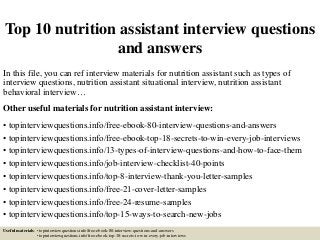
According to research, exercise can prevent or reduce the risk of several chronic diseases. Moderate exercise has been shown to reduce the risk of developing certain types. People who exercise regularly are less likely to develop diabetes or cardiovascular disease. This is linked to obesity. Also, people who are physically active tend to have fewer symptoms of these conditions, which means that they can help prevent these illnesses.
There are many benefits to exercising. It has been shown that exercise can improve memory and concentration, decrease the risk of depression, increase the immunity system, and lower cholesterol and blood pressure. Physical activity also increases WBCs which makes it an effective anti-inflammatory agent. This could be a way to avoid many diseases. Exercise is being recommended as a treatment for chronic illnesses because of its many benefits.

Transdiagnostic means that the benefits of exercise may vary according to your symptoms. Exercise can help improve sleep quality, mood, stress relief, and anxiety. Exercise is also a great way reduce your risk of stroke, diabetes, heart disease and other illnesses. These diseases can be prevented by exercising. Exercise is also a great way to keep your weight healthy and improve your overall health.
According to the Mayo Clinic there are 29,000,000 people with diabetes in America. The vast majority of these patients are unaware of their condition, and many have never been diagnosed. A study of heart attack patients showed a 20 to 25% reduction in their mortality compared to non-participants. Other studies found even greater reductions. Studies from the past were reviewed in large numbers and concluded that exercise rehabilitation made it more likely for people to survive heart attacks.
Regular exercise is good for your health. It can improve the quality of life and reduce the risk of many diseases, including type 2 diabetes, cardiovascular disease, and several types of cancer. You can also reduce your chances of getting other health problems like anxiety, dementia, depression. These are just a handful of the many benefits exercise has. It is important to stay active and to reduce the risk of developing chronic diseases. Exercising has many other benefits.

Regular exercise has been linked to a lower chance of developing many chronic diseases. It can help lower your risk of developing high blood pressure or other complications. It can also improve your overall health. Study of heart failure showed that exercise can reduce the risk of stroke. This means that your chances of suffering from cardiovascular diseases will be reduced if your activity level increases. If you're overweight, exercise will help you lose excess weight.
FAQ
How can you live your best life every day?
It is important to identify what makes you happy. You can then work backwards once you know what makes YOU happy. Asking other people how they live their best lives every day is also a good idea.
You can also read books by Wayne Dyer, such as "How to Live Your Best Life". He talks about finding happiness and fulfillment in all aspects of our lives.
Is it possible to have a weak immune system due to being cold?
Cold can make you less immune to infection because your body makes fewer white blood cells, which are essential for fighting infections. Cold can also make you feel better as your body releases endorphins to your brain, which reduce pain.
What's the difference between a calorie and kilocalorie?
Calories can be used to measure how much energy is in food. Calories is the unit of measurement. One calorie equals one degree Celsius of energy to raise water temperature by 1 gram.
Kilocalories can also be used to refer to calories. Kilocalories can be measured in thousandsths of one calorie. 1000 calories are equal to one kilocalorie.
Do I need calories to count?
It is possible to wonder "What diet is best for me?" or "is counting calories necessary?" It depends on many factors such as your current health, personal goals, preferences, and overall lifestyle.
The Best Diet for Me - Which One is Right For You?
My current health, my personal goals and lifestyle will determine the best diet for me. There are many options, both good and bad. Some are better for certain people than others. What should I do? How do I make a good decision?
This article aims at answering these questions. This article begins with a brief overview of the various types of diets that are available today. Next, we'll discuss the pros and cons for each type of diet. Finally, we'll discuss which one is best.
Let's first take a look at different diets.
Diet Types
There are three main types. Low fat, high proteins, and ketogenic. Let's look at each one briefly.
Low Fat Diets
A low-fat diet reduces the amount of fats you eat. This is done by reducing your intake of saturated oils (butter, cream cheeses, etc.). They are replaced by unsaturated fats such as avocados, olive oil, and cream cheese. If you want to lose weight fast and easily, then a low fat diet is often recommended. This type of diet can lead to constipation and heartburn as well as indigestion. It can also lead to vitamin deficiencies, if someone doesn't get enough vitamins in their food.
High Protein Diets
High protein diets are known to restrict carbohydrate intake and promote the consumption of proteins. These diets have higher protein levels than other diets. They are meant to help build muscle mass and burn more calories. They may not be able to provide sufficient nutrition for people who need it. Also, they tend to be very restrictive, so they aren't suitable for everyone.
Ketogenic Diets
Ketogenic diets also go by the name keto diets. They are high on fat but low in carbs and proteins. They are typically used by athletes and bodybuilders because they allow them to train harder and longer without getting tired. You must adhere to all side effects, including fatigue, headaches, nausea and headaches.
What is the healthiest lifestyle to life?
A healthy lifestyle means eating healthy foods, exercising regularly, sleeping well, and avoiding stress. These guidelines will help you live a long, healthy life.
Starting small can make a big difference in your diet, and even your exercise routine. Try walking for 30 minutes each day to lose weight. Swimming or dancing are great options if your goal is to become more active. A Fitbit or Strava online program that tracks your activity can be joined.
What can you do to boost your immune system?
The human body consists of trillions of cells. These cells combine to form organs or tissues that serve specific functions. A cell that dies will be replaced by another. Chemical signals, called hormones, allow cells to communicate with each other. All bodily processes are controlled by hormones, including metabolism and immunity.
Hormones can be described as chemicals produced by glands in the body. They travel through our bloodstream and act as messengers, controlling how our bodies function. Some hormones are produced within the body while others are externally manufactured.
Hormone production begins when a hormone-producing gland releases its contents into the bloodstream. Once hormones are released, they move through the body to reach their target organ. Some hormones may only remain active for a limited time. Other hormones stay active longer and continue to influence the body's functioning even after they leave the bloodstream.
Some hormones may be produced in large numbers. Others are produced in smaller amounts.
Some hormones are only produced at certain times in your life. For instance, estrogen is produced during puberty, pregnancy, menopause, and old age. Estrogen assists women with breast development, bone density, and osteoporosis prevention. Estrogen promotes hair growth, and skin stays soft and smooth.
Statistics
- According to the 2020 Dietary Guidelines for Americans, a balanced diet high in fruits and vegetables, lean protein, low-fat dairy and whole grains is needed for optimal energy. (mayoclinichealthsystem.org)
- The Dietary Guidelines for Americans recommend keeping added sugar intake below 10% of your daily calorie intake, while the World Health Organization recommends slashing added sugars to 5% or less of your daily calories for optimal health (59Trusted (healthline.com)
- WHO recommends reducing saturated fats to less than 10% of total energy intake; reducing trans-fats to less than 1% of total energy intake; and replacing both saturated fats and trans-fats to unsaturated fats. (who.int)
- WHO recommends consuming less than 5% of total energy intake for additional health benefits. (who.int)
External Links
How To
How to keep motivated to stick with healthy eating and exercise
Motivation tips for staying healthy
Motivational Tips for Staying Healthy
-
Make a list of your goals
-
Set realistic goals
-
Be consistent
-
Reward yourself when you achieve your goal
-
Even if you make a mistake, don't quit!
-
Have fun!